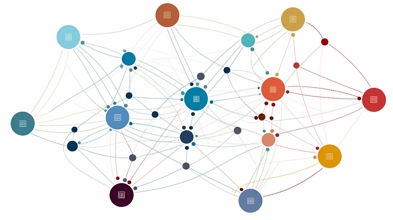Transitional Care Management
What is TCM?
Transitional Care Management (TCM) services address the hand-off period between the inpatient and community setting. After a hospitalization or other inpatient facility stay (e.g., in a skilled nursing facility), the patient may be dealing with a medical crisis, new diagnosis, or change in medication therapy. Family physicians often manage their patients’ transitional care.
How it works
Required patient transitional care management (TCM) services include:
The 30-day TCM period begins on a patient’s inpatient discharge date and continues for the next 29 days.
TCM services begin the day of discharge from 1 of these inpatient or partial hospitalization settings:
After inpatient discharge, the patient must return to their community setting. These could include:
Proven benefits
High-quality transitional care is especially critical for older adults with multiple chronic conditions and complex, multi-specialty care plans, who require meticulous continuity of care as they move frequently between care settings. The National Institutes of Health reports that suboptimal “handoffs” of these older adults and their caregivers from hospital to home have been linked to adverse events, low satisfaction, and high rehospitalization rates. Transition Care Management (TCM) improves patients’ quality of life and helps reduce hospital readmission. It also helps to control costs for primary care, emergency department care facilities, long-term care centers, and nursing homes alike.
The Affordable Care Act established transitional care programs to improve care quality and reduce costs at primary care centers, inpatient clinics, emergency departments, long-term care facilities, and nursing homes. Rehabilitation facility and skilled nursing facility care providers have found that these transitional care programs help post-hospital discharge patients and their family caregivers enjoy better continuity of care and safer transfer between care settings. The Health Affairs journal reviewed randomized clinical trials of transitional care interventions and care coordination upgrades — like assigning nurse team leaders and visiting discharged patients at home — which demonstrated that TCM leads to reductions in readmissions through at least 30 days after discharge planning.
Improved Care Management is a key focus of health reform. TCM ensures patients receive the care they need from the moment discharge planning begins in a care hospital or other health care facility; it continues for at least 30 days so that the patient can adjust to a new care setting and prevent adverse effects.
Our approach
AYA Digital solution is designed to help service providers with care transition:
AYA Digital automates the entire care transition workflow:
According to the Centers for Medicare and Medicaid Services (CMS), “care transitions occur when a patient moves from one health care provider or setting to another. Nearly one in five Medicare patients discharged from a hospital—approximately 2.6 million seniors—are readmitted within 30 days, at a cost of over $26 billion every year”.

